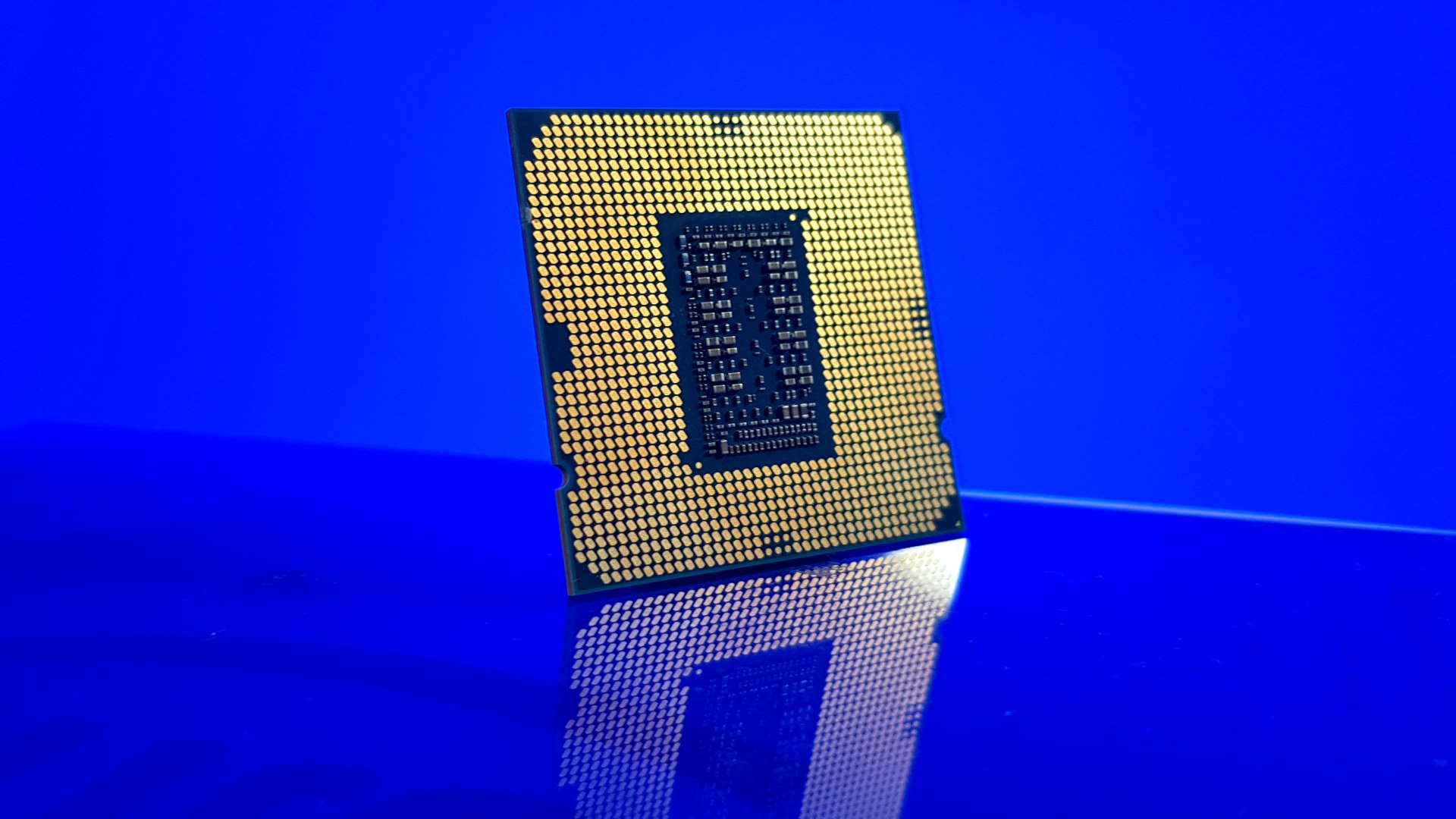Our Verdict
Intel's best chips are its budget chips, especially when you put them head-to-head with the AMD Ryzen competition. But these are strange hardware times, and the version of the 11400 with graphics is actually the cheaper CPU.
For
- Matches top-end gaming performance
- Six cores and 12 threads
- Should come cheap
Against
- Weirdly overpriced right now
PC Gamer's got your back
The Intel Core i5 11400F is one of the best of the latest 11th Gen desktop CPUs, and it's also one of the cheaper six-core, 12-thread processors you'll find. For half the price of the equivalently core-happy AMD Ryzen 5 5600X, you're certainly not getting half the gaming performance.
So yes, it has actually happened; Bizarro CPU World has come to pass. This strange new reality is one where the dominant processor player is AMD, with the most expensive, most powerful chips available to PC gamers, and Intel is the one providing the budget alternatives that punch way above their weight class.
This is a turnaround of epyc proportions :smug face:
That 'F' suffix in the Core i5 11400F denotes a lack of iGPU in the processor package, which is no bad thing for a budget gaming CPU, and normally means a cheaper chip. Times are strange, however, and the Core i5 11400 is exactly the same CPU but with those integrated GPU cores enabled. It should be more expensive, but is actually available for a lot less right now.
Performance should be practically the same between the two so you can almost pick which of those two versions of the 11400 silicon is cheapest and be happy with your choice. Because the Core i5 11400/F is a great budget gaming CPU.
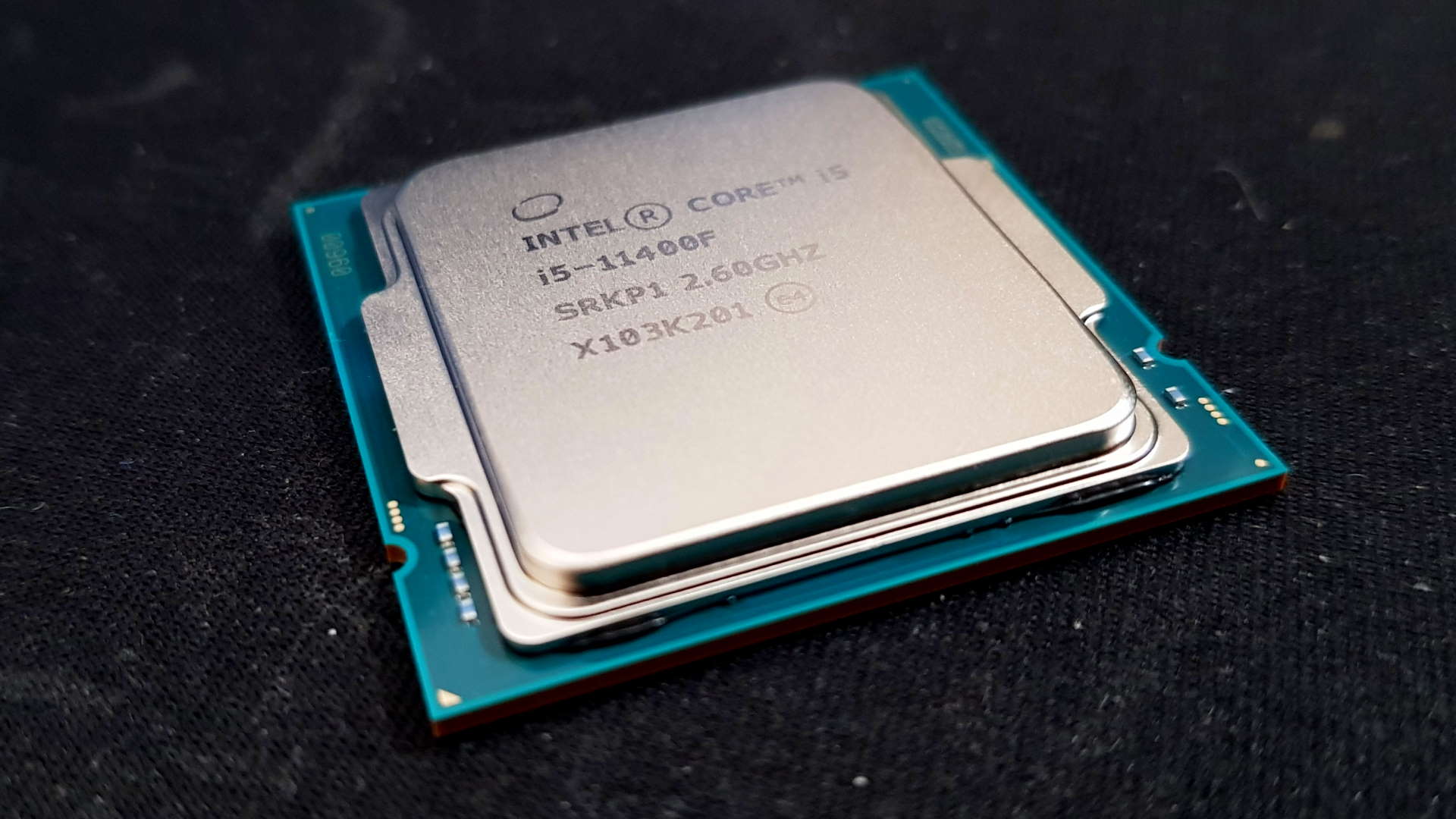
As a CPU generation itself, however, Rocket Lake has felt kind of lacklustre. The top-end Core i9 11900K is a chip that only its parents could love. It offers fewer cores than its erstwhile Core i9 compatriot and features the bastardised Cypress Cove core architecture that pulled the 10nm Sunny Cove core back into the arms of 14nm manufacturing.
This backport resulted in a bigger slice of silicon and meant it couldn't fit the previous generation's ten-core maximum into the top Rocket Lake chip, and if nothing else that made it feel like tangibly worse value.
But what Cypress Cove does deliver is higher IPC, and that has led to higher gaming performance across the board compared with previous Intel desktop chips. Though up top, considering what you're missing out on compared with either the Core i9 10900K or Ryzen 9 5900X, the boon of higher gaming performance doesn't make up for genuine lack in multithreaded grunt.
Lower down the stack, however, it's a different matter. The Core i5 11600K is a great little chip, far cheaper and at least as effective a gaming chip as the popular Ryzen 5 5600X. Take the power shackles off in your BIOS, forgetting the dire situation we've put the planet in, and you can squeeze even more performance out of the chip.
Even if it was the same price as the six-core Ryzen the Core i5 11600K would still look good.
CPU generation: 11th Gen
Codename: Rocket Lake
Lithography: 14nm
Cores: 6
Threads: 12
Base clock speed: 2.6GHz
Max Turbo Frequency: 4.4GHz
Cache: 12MB
TDP: 65W
The Core i5 11400F just takes it that little bit further. It's cheaper still, has the same six-core, 12-thread design—thanks to Intel finally lifting the artificial Hyper-Threading embargo—and can still hit a healthy 4.2GHz all-core Turbo clock speed. If you stick to the Intel recommended limits that will only last a few seconds, but most motherboards give you the option to let the silicon run at its limits.
Letting our Asus test board take care of the power limits, however, means a constant 4.2GHz under full load. That blows the old Core i5 10400F out of the water in multi-threaded performance and means it's not far off either the 11600K or the 5600X.
But if serious multi-core rendering performance is a big thing for you then chances are that you'll be up for spending more on something with a bit more grunt. What the i5 11400/F chips are about is budget gaming prowess with a decent enough thread-count to ensure you're not left out further down the line.
I'm not saying that jamming a six-core CPU into your rig is necessarily future-proofing, yet since Intel allowed Hyper-Threading throughout the range even its budget chips have enough processing grunt inside them to not only deliver excellent gaming frame rates, but also offer a modicum of compute power too.
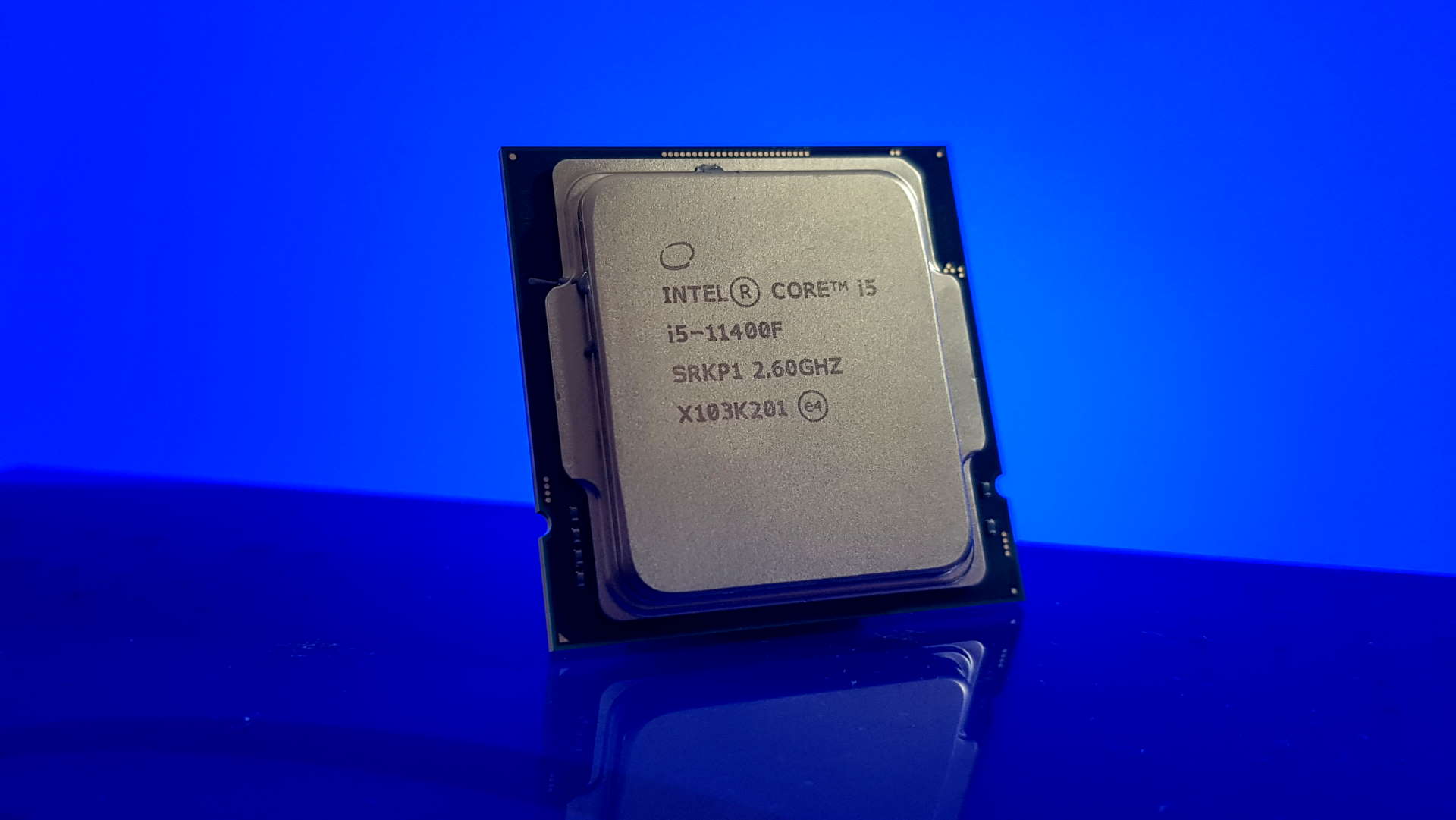
System performance
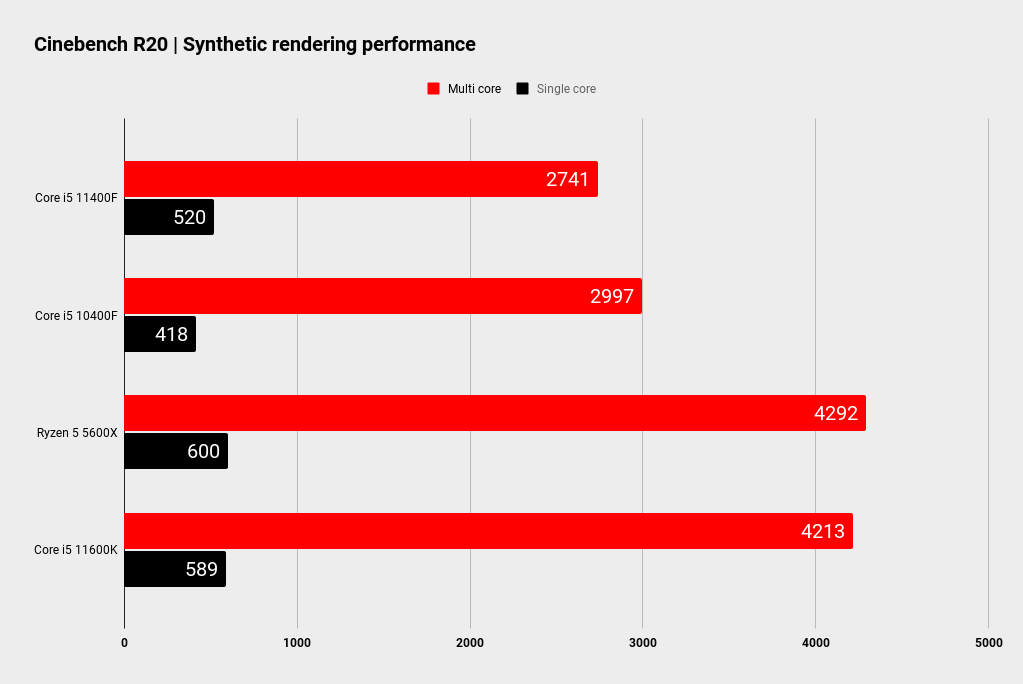
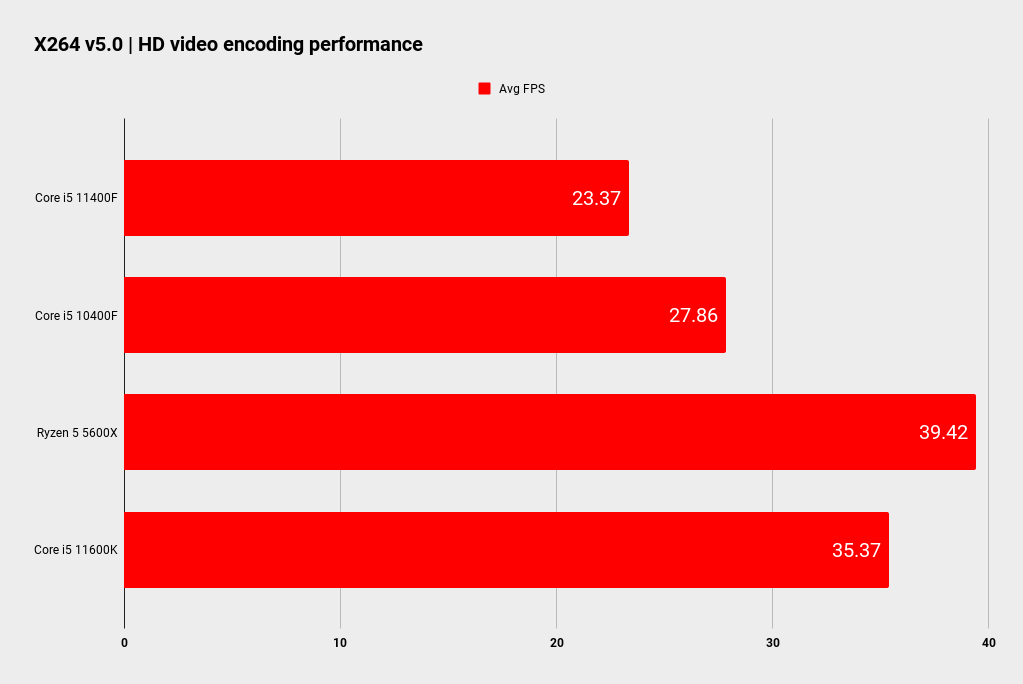
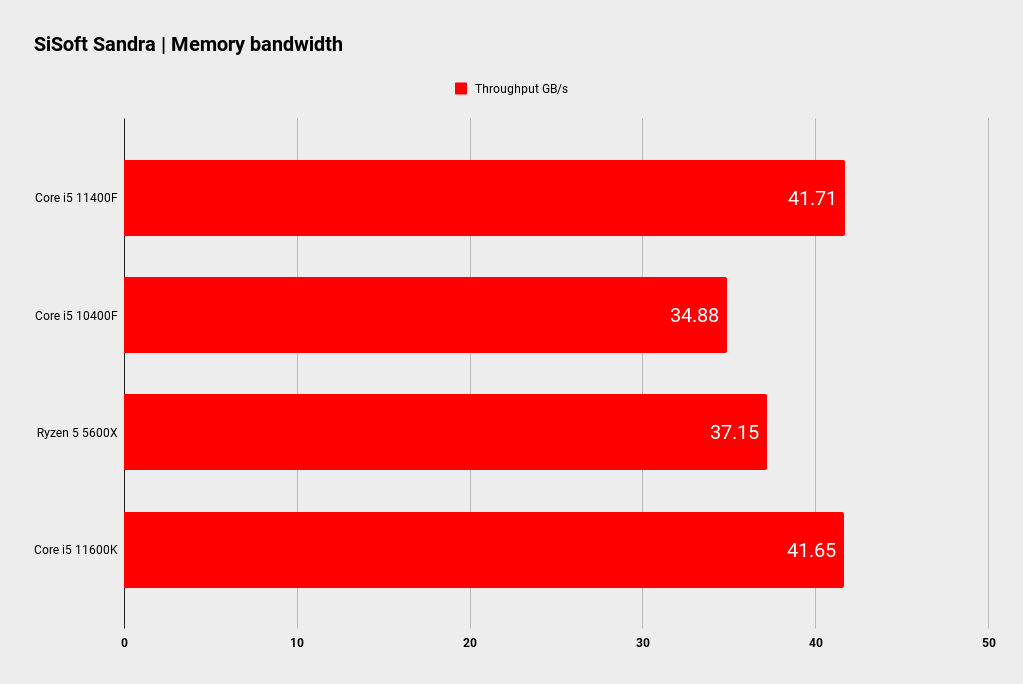
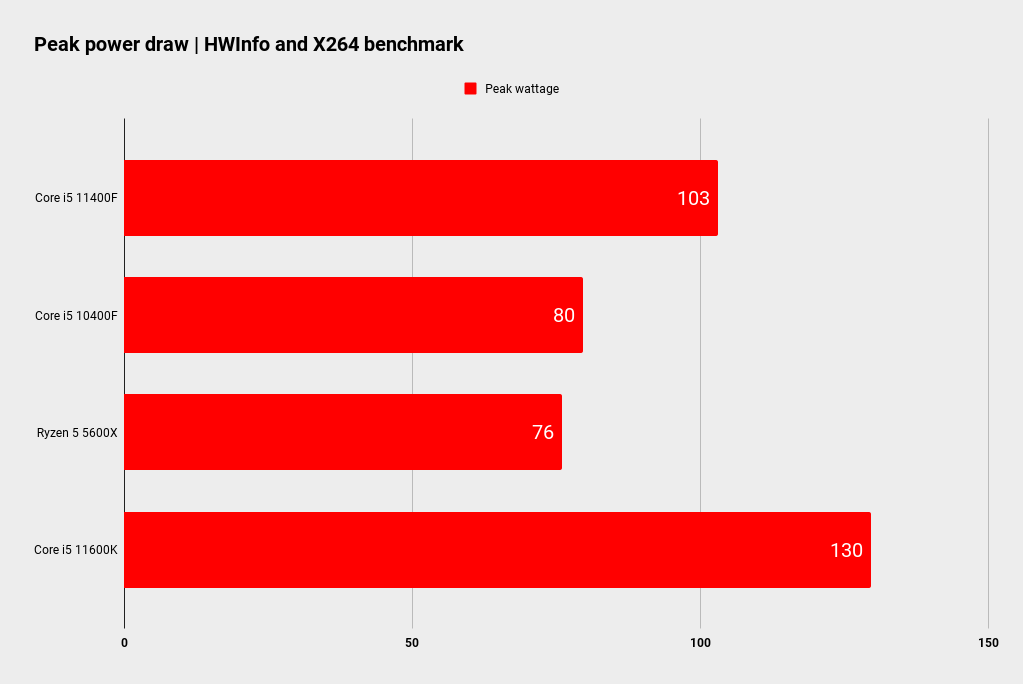
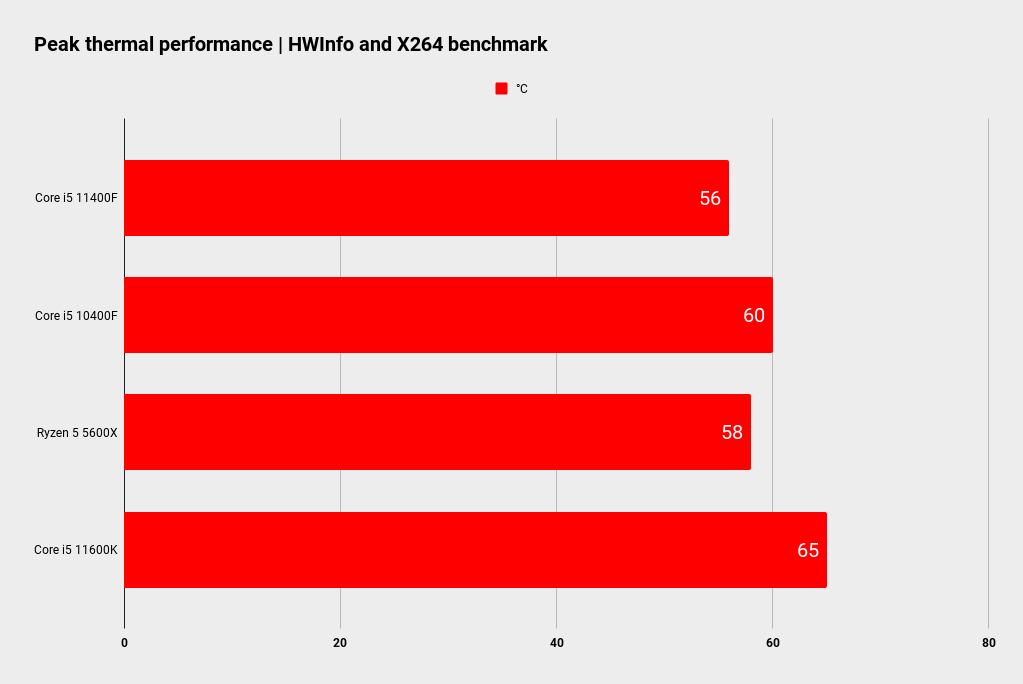
Our basic testing, using Intel's recommended power limits, show the i5 11400F absolutely hosing the equivalent Comet Lake i5 10400F when it comes to single threaded performance. That just highlights where the benefits of the Cypress Cove core appears compared with the Skylake core at the heart of the rest of Intel's 14nm chips.
The lower base clock speed, however, holds it back when it comes to multi-threaded benchmarks.
But that goes out of the window as soon as you flip the theoretical BIOS switch and unlock those arbitrary power limitations, something most of us would do to unleash the full power of the chip in our rigs. The Cinebench R20 multi-threaded score then leaps up to 3,869 compared with its base 2,741 score, and that only puts it a shade behind the 5600X and 11600K.
Gaming performance
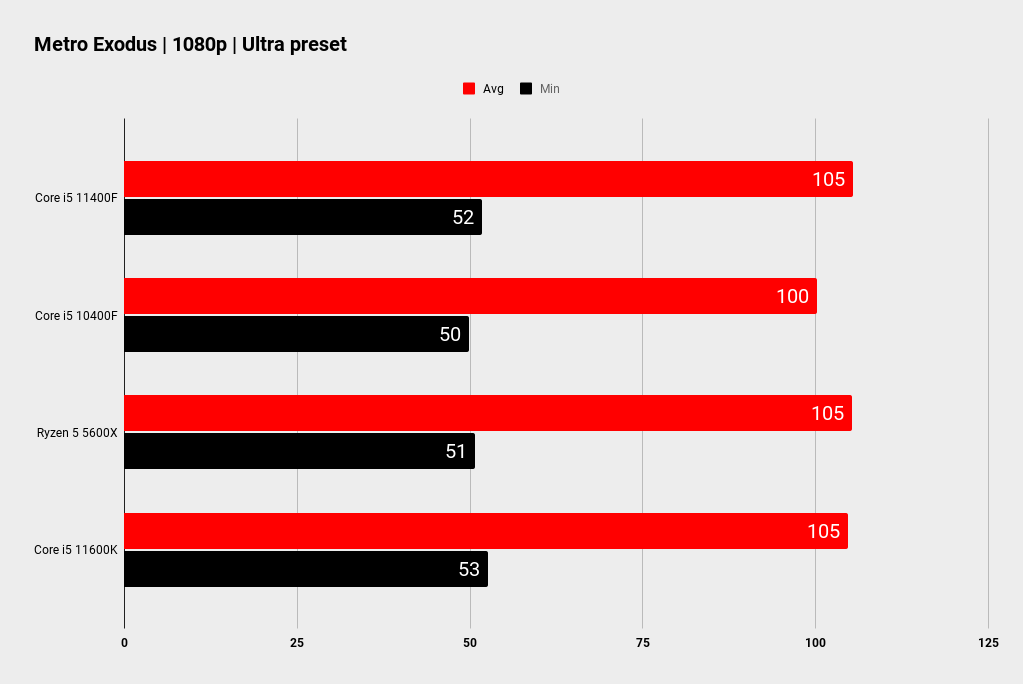
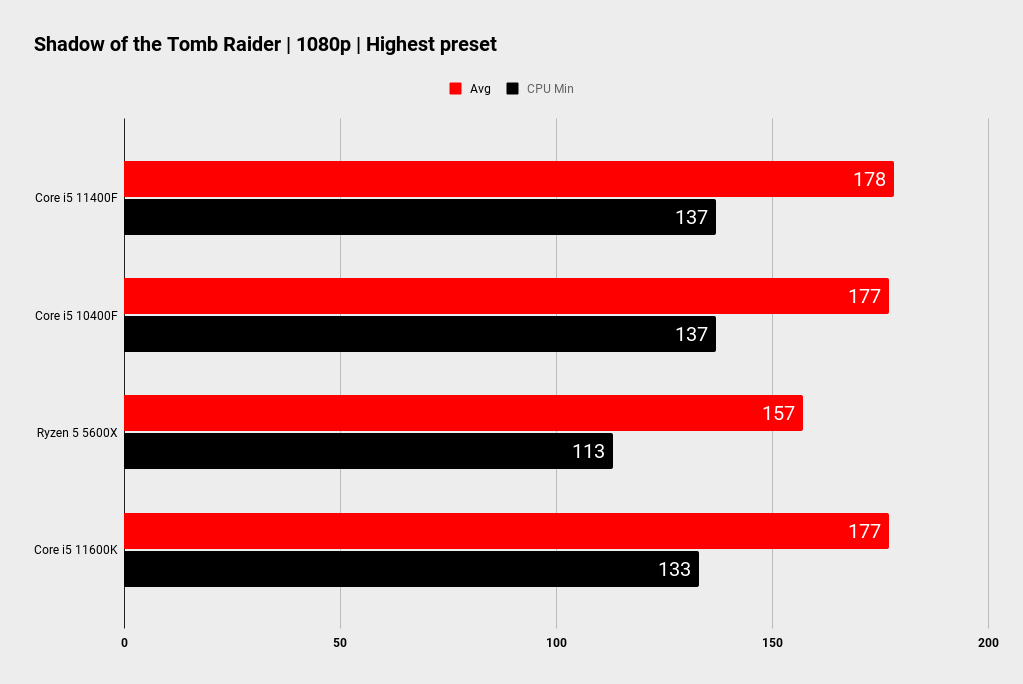
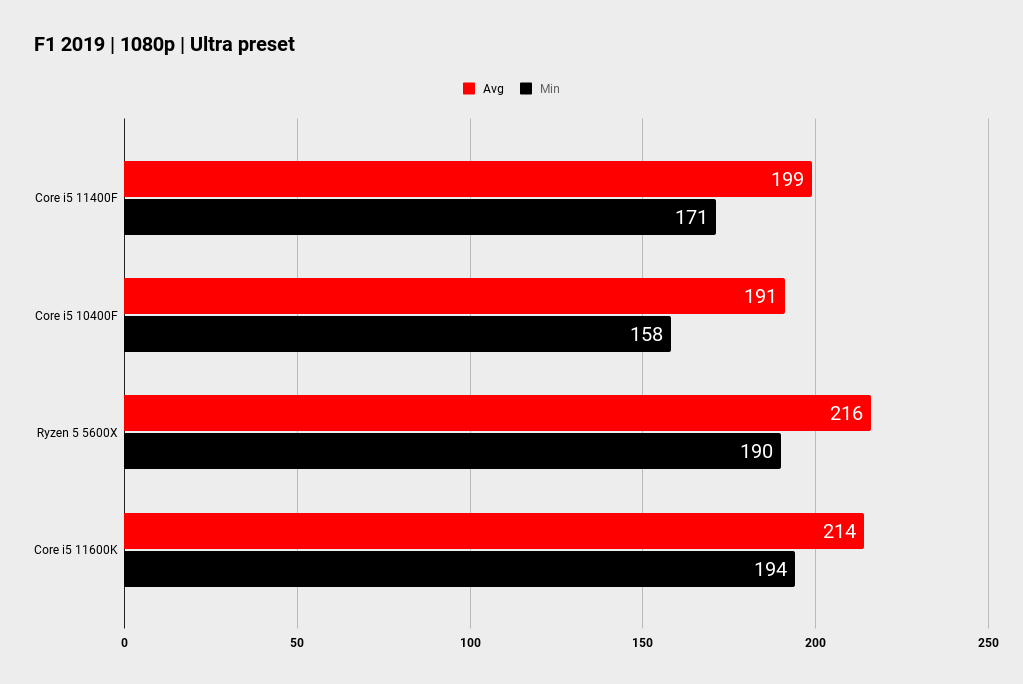
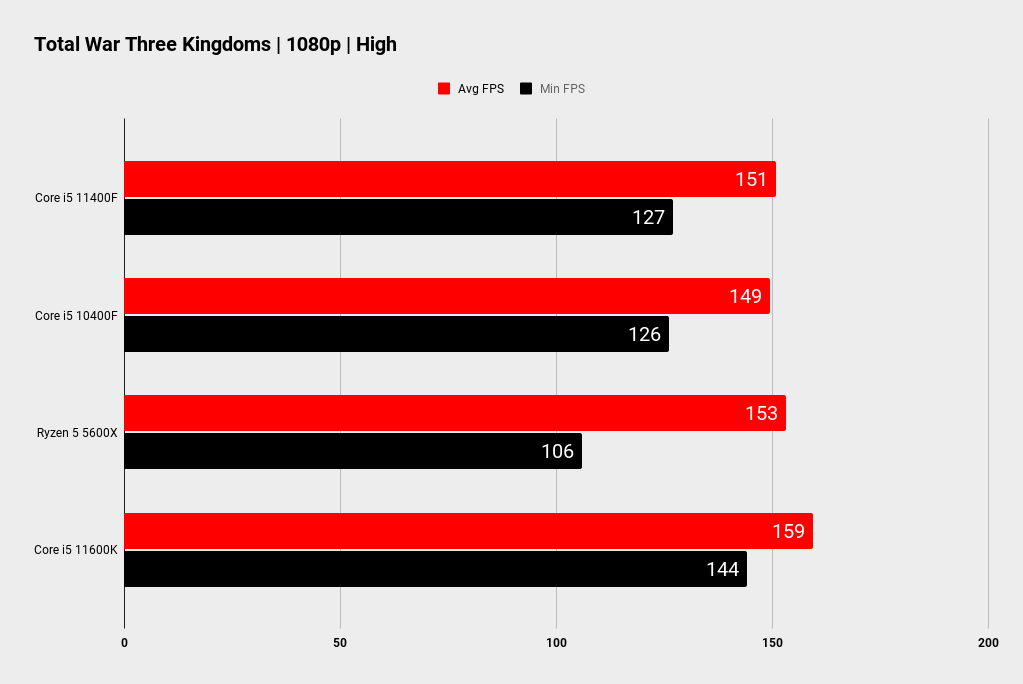
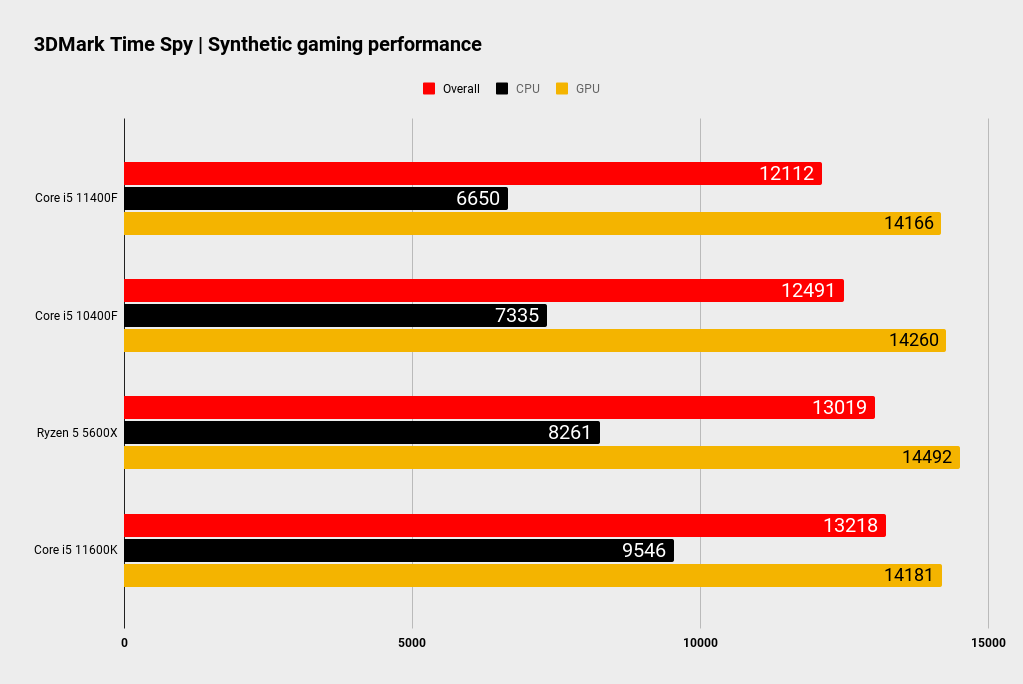
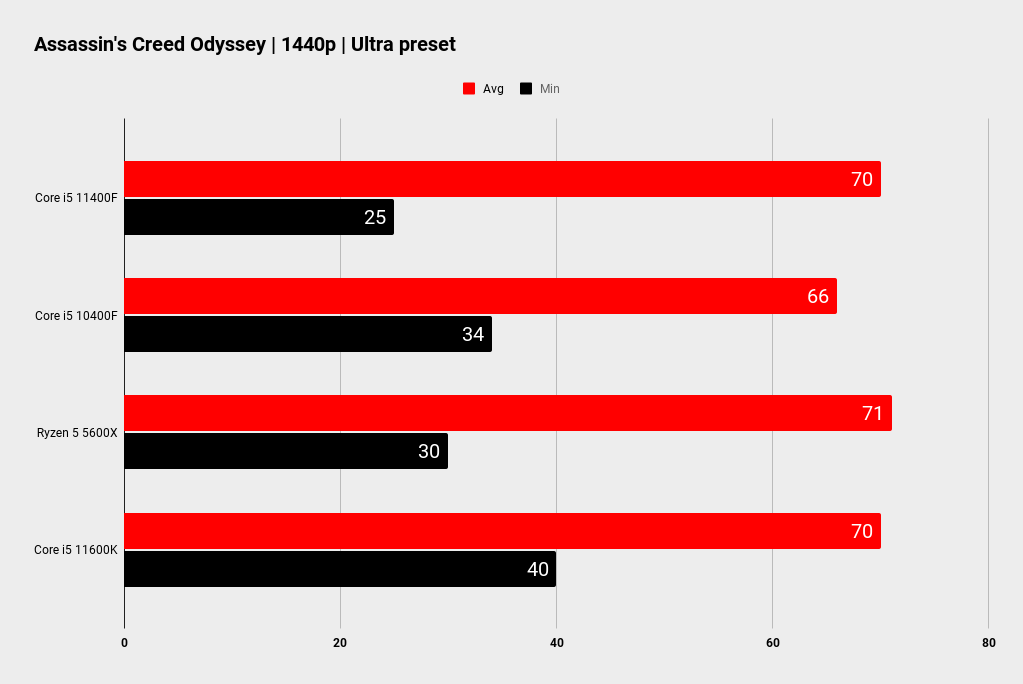
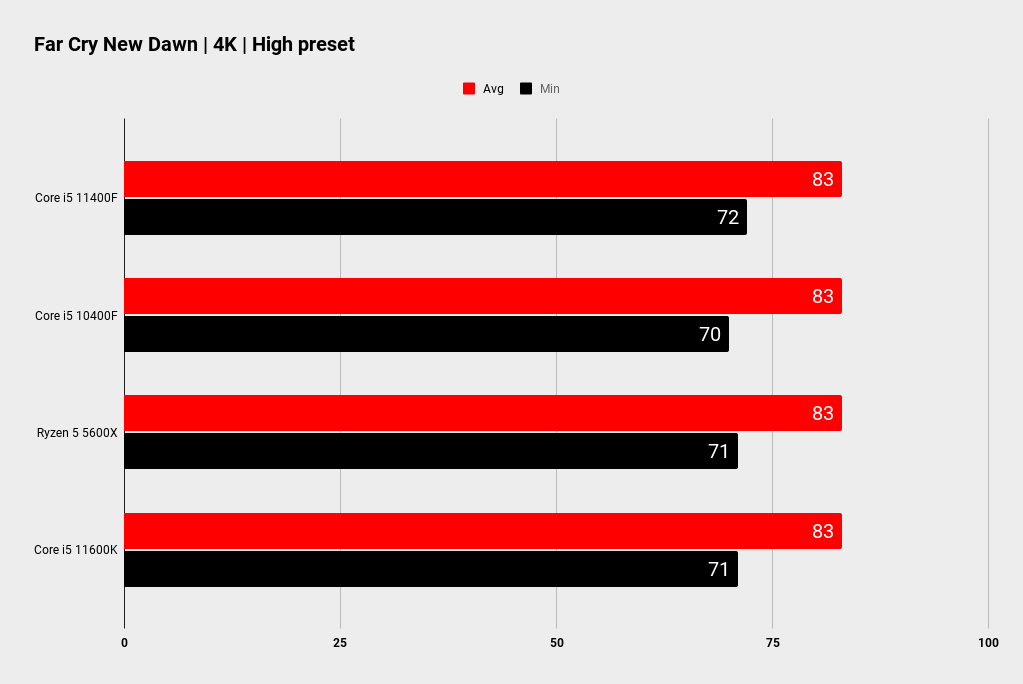
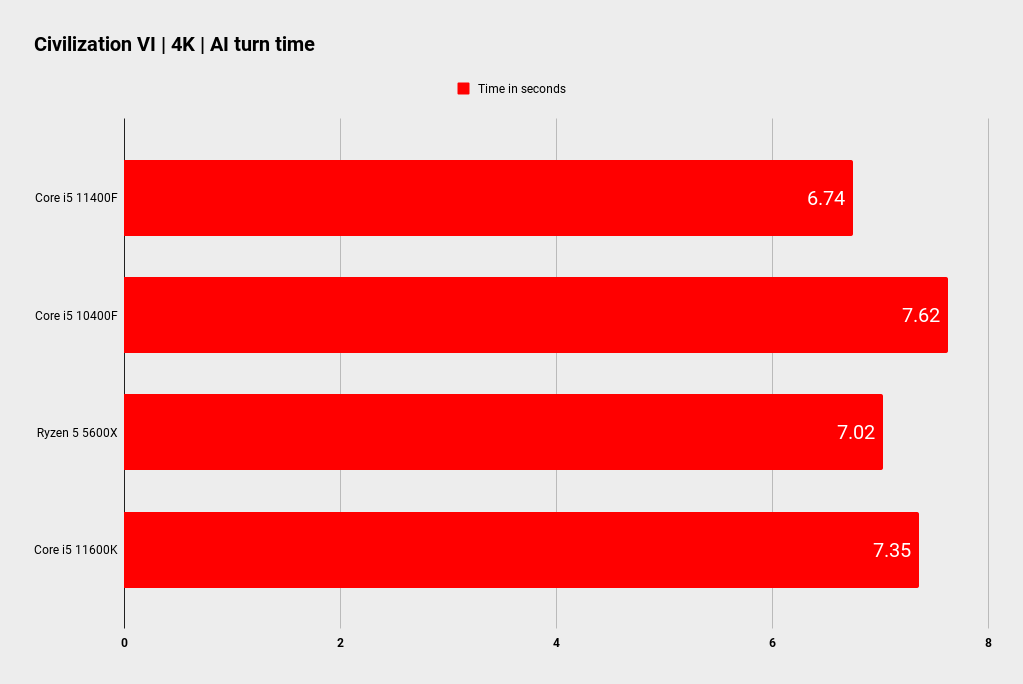
Intel motherboard: Asus ROG Maximus XIII Hero
Chipset: Z590
AMD motherboard: Gigabyte X570 Aorus Master
Memory: Corsair Vengeance RGB Pro 32GB @ DDR4-3200
GPU: Nvidia RTX 2080 Ti
Storage: 2TB Kioxia Exceria Plus
CPU Cooler: Corsair H100i RGB Pro
PSU: NZXT 850W
Chassis: DimasTech Mini V2
Monitor: Philips Momentum 558M1RY
When it comes to gaming performance, even with the original power limitations in place, the higher IPC of Rocket Lake allows it to outshine the Comet Lake chip in CPU-heavy games and go toe-to-toe with the big boys in the rest.
What you're seeing is a budget chip that's capable of delivering gaming frames to your graphics card just as capably as the most powerful processors on the market. If you're looking to save some cash on dedicated gaming PC, then the question has got to be: Why would you pay more for any other CPU?
The Intel Core i5 11400F pricing is a bit frustrating now, however, but that's likely down to current chip scarcity. On Amazon it's $279 which puts it far too close to the 11600K for comfort, but with the tray price at $157 it ought to be under the $200 mark. The straight Core i5 11400 (the same chip but with the Xe graphics enabled) is currently retailing for less than the F-series chip, at $210.
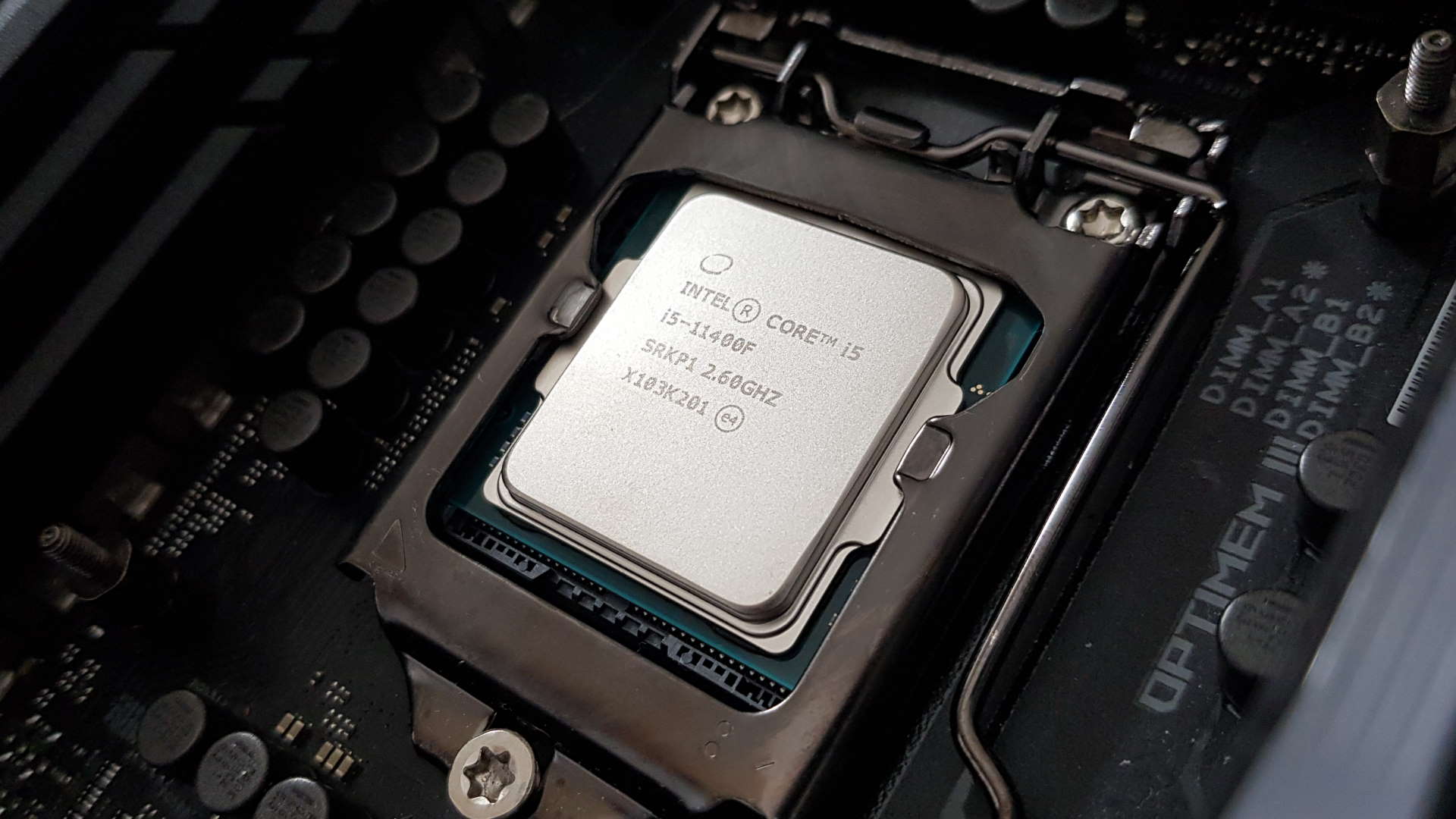
Realistically though, you should be looking at a budget gaming processor, in the Core i5 11400/F, that's at least $100 cheaper than the best gaming chips from the competition, and can perform essentially just as well.
Sure, Rocket Lake at the high end is a bit of a bust, and yeah, the Cypress Cove cores are a little thirsty for power at the best of times, but when you're gaming like a hero on the i5 11400 with or without the F suffix, you're not going to care. Especially if you're able to take that spare $100 and add it to your new GPU fund. Y'know, whenever those appear.
Intel's best chips are its budget chips, especially when you put them head-to-head with the AMD Ryzen competition. But these are strange hardware times, and the version of the 11400 with graphics is actually the cheaper CPU.

Dave has been gaming since the days of Zaxxon and Lady Bug on the Colecovision, and code books for the Commodore Vic 20 (Death Race 2000!). He built his first gaming PC at the tender age of 16, and finally finished bug-fixing the Cyrix-based system around a year later. When he dropped it out of the window. He first started writing for Official PlayStation Magazine and Xbox World many decades ago, then moved onto PC Format full-time, then PC Gamer, TechRadar, and T3 among others. Now he's back, writing about the nightmarish graphics card market, CPUs with more cores than sense, gaming laptops hotter than the sun, and SSDs more capacious than a Cybertruck.
